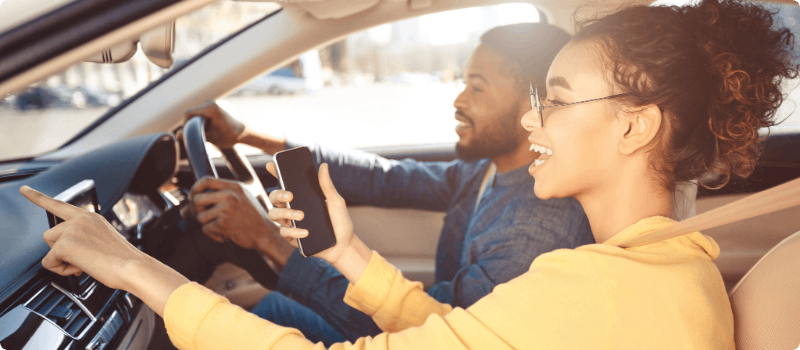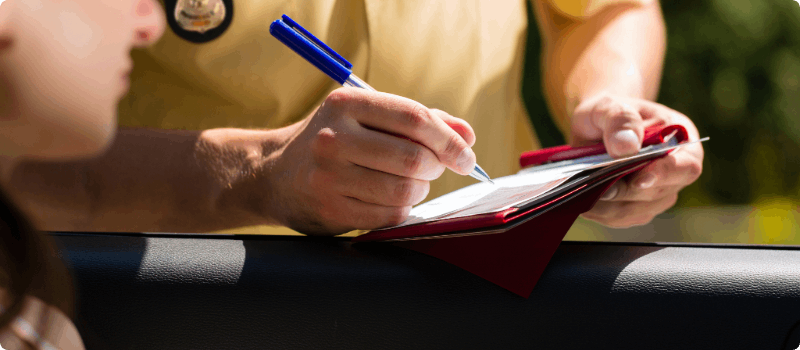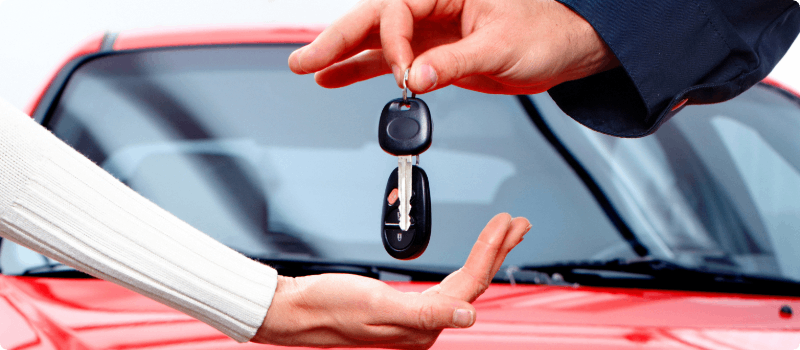Does My Car Insurance Cover Other Drivers?
Updated April 4, 2024 . AmFam Team
You may prefer to be the one driving your own car. However, circumstances may compel you to let someone else drive. A travel buddy may take over as driver on a long road trip. Someone in your household may use it for a quick trip to the supermarket.
You might be wondering, though, just how much gets transferred in the process. In situations like these, does car insurance follow the car or the driver? We’ll explain how insurance may help when someone not listed on your policy drives your car.

Does car insurance follow the car or the driver?
In most cases, auto insurance follows the car rather than the driver. It's the policy that's responsible for accident-related damages. Many insurers can help protect your car regardless of who's driving.
With that said, the specifics of a claim can vary from one accident to the next. Important details may include the accident's location, state laws and the insurance carrier itself.
On top of that, every policy is different. For example, some insurers let you exclude other drivers from your coverage in exchange for lower rates. Check your policy for these exclusions before inviting someone to the driver's seat.

Can my car insurance cover other drivers?
Usually, yes. Your car insurance coverage should be able to extend to anyone else driving your car. Even if someone isn’t listed on the policy, they can operate your vehicle. If you explicitly name someone as an excluded driver in your policy, however, none of this applies to them.
However, some coverages may not apply when the primary insured isn’t driving the car. Review your policy or speak with an agent about when someone may or may not be protected.
This also means that only your car insurance will apply to your car. If someone else gets into an accident in your vehicle, their own policy likely won’t cover the damages. This isn’t always the case, but that’s usually what happens.

How Your Policy May Help Other Drivers
Insurance may follow the vehicle, so it's important to understand which coverages may apply. Ask your agent about these coverages to better understand how you may or may not be covered when someone else drives your car.
- Collision coverage: Your neighbor helps move your car but runs it into a tree by mistake. Insurance can help turn this incident into a funny memory.
- Medical payment coverage: Your spouse takes your car to the supermarket, then finds themself requiring hospital care after an accident. Your policy may help pay the medical bills.
- Uninsured motorist coverage: You have insurance. The person who hit your car, while your sibling was driving it, doesn’t. This can may help cover what the responsible party can’t.
- Property damage liability coverage: Your friend, using your car, accidentally rear-ends another driver stopped at a traffic light. This coverage may help to pay for the damage caused to the other driver's car.
- Comprehensive coverage: While driving your car, a relative accidentally hits a deer that ran out in front of them. This coverage may help with paying to repair the damage to your vehicle.

If someone else drives my car and gets a ticket, will it affect my insurance rates?
It depends on the situation, the carrier and especially the driver’s status on your insurance policy. Is the ticketed driver a rated operator on the policy? If so, then it may impact the policy premium. If not, then probably not.
This is only a general answer. Every situation is unique, so reach out to your agent for any questions about your specific circumstances.

Keep These Tips in Mind Before Lending Your Car
If you plan on letting someone borrow your car, consider the following:
- Review your policy. Your friend should be covered by insurance if they’re in an accident. Still, make sure you understand the details and the state-specific laws of your insurance. An agent can help.
- Make sure you’re both on the same page. If your friend is covered for accident-related damages, will they help pay for any additional costs or deductibles? Be more prepared by discussing it first.
- Be careful who you trust with your car. If someone is in an accident while driving your vehicle, you could be put in a difficult situation. Your premiums could go up. You could even be named in a lawsuit over property damage or injuries resulting from the incident. Make sure someone is a trustworthy driver with a good record before giving them the keys.

Other Frequently Asked Questions
Can the person driving my car use their insurance to cover accident-related damages?
Possibly. Some carriers may take over for covered events, while others may not. If you know in advance who else might drive your car, asking them to check how their insurer would approach this situation would be a great idea.
Will my car insurance cover others for paid car-sharing, ridesharing or commercial activities?
Not likely — unless you have the right coverage and/or endorsements.
This information represents only a brief description of coverages, is not part of your policy, and is not a promise or guarantee of coverage. If there is any conflict between this information and your policy, the provisions of the policy will prevail. Insurance policy terms and conditions may apply. Exclusions may apply to policies, endorsements, or riders. Coverage may vary by state and may be subject to change. Some products are not available in every state. Please read your policy and contact your agent for assistance.
Tools & Resources
NextScripts
JSS component is missing React implementation. See the developer console for more information.

